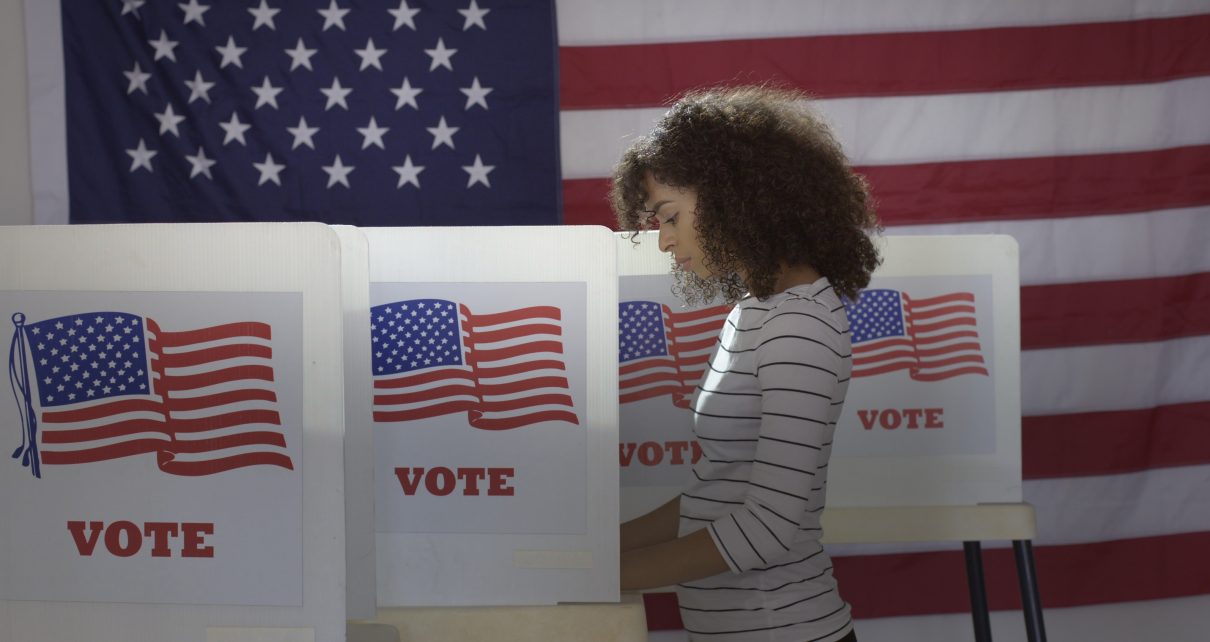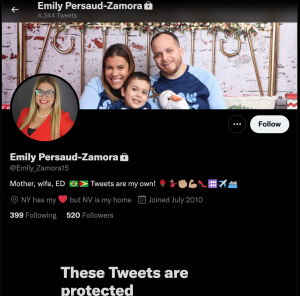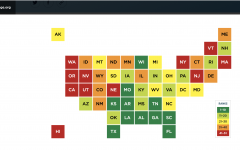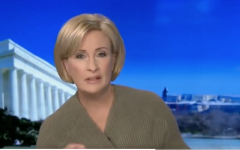
Woman in polling station, voting in a booth with US flag in background. (Photo: vesperstock/Shutterstock)
Clinton Law Firm Files Suits to Stop Election Integrity Ballot Initiatives
The lawsuits on behalf of Persaud-Zamora and Jeng were filed by lawyers from the D.C. law firm of Marc Elias
By Robert Lauer, March 1, 2022 7:31 am
On January 28, 2022, David G. Gibbs, Executive Director of the Repair the Vote political action committee, filed two ballot petitions to appear on the ballot in the upcoming November election if enough signatures are collected for qualification.
The first petition is a proposed constitutional amendment that will require each person who votes at a polling location to show a government-issued photo ID. It also requires those who vote by mail to add a method, other than just their signature, of verifying their identification.
The second petition is a Referendum Initiative that asks the voters to approve or disapprove three parts of Assembly Bill 321 that was passed by the Legislature in 2021: automatically mailing ballots to all active registered voters; ballot harvesting; and, allowing the elections department to count mail-in ballots received after election day that do not have readable postmarks.
On February 18, 2022, lawyers for Clark County resident Emily Persaud-Zamora and Eric Jeng filed separate lawsuits against the Nevada Secretary of State (NVSOS) Barbara Cegavske seeking to block both ballot initiatives.
Persaud-Zamora is a Democratic political activist, Director of Let Nevadans Vote Coalition, and the Executive Director of Silver State Voices (SSV). Both entities are organizationally connected and were instrumental in writing AB 321 and publicly advocated for the passage of the bill. SSV is a non-partisan “dark-money” funded group through The New American Majority (NAM).

The mission of SSV is to:
“Create a more robust democracy by increasing the civic participation of the New American Majority (NAM) in Nevada. SSV develops infrastructure, fosters collaboration among diverse entities, and employs new tools and technology to equalize civic engagement, access, and representation among these communities. SSV believes that democracy works best and its outcomes are most just when all voices are heard. Silver State Voices is a fiscally sponsored project of State Voices.”
In early February, Persaud-Zamora told The Las Vegas Sun:
“When we’re talking about passing a voter ID law,” said Emily Persaud-Zamora, executive director of Silver State Voices, ‘it’s something that would discourage a segment of a community from actually participating in an election.’
Persaud-Zamora, also the leader of the Let Nevadans Vote Coalition, a group of local and national groups working to protect and expand civic access, said voter ID laws disproportionately affect communities of color and people who have lower incomes.”
Persaud-Zamora issued this statement to The Las Vegas Sun two weeks before her lawsuit against the Secretary of State was filed and has recently changed her public Twitter profile to protected.
Eric Jeng is also a Democratic activist, a community organizer, Deputy Director of APIA Nevada, and the Director of Outreach for the Asian Community Development Council (ACDC). These organization claim to be non partisan, but a quick review of their Twitter timelines illustrates political partisanship:
There's no way @realDonaldTrump could be like Abe Lincoln because that would require him to be honest.#Debates2020
— One APIA Nevada (@OneAPIANevada) October 23, 2020
The lawsuits (see below) on behalf of Persaud-Zamora and Jeng were filed by lawyers from the D.C. law firm of Marc Elias. Elias was general counsel for the Clinton campaign during the 2016 election and cited in the Durham report’s investigation into the Russia collusion FBI investigation into President Trump–which turned out to be a manufactured, damaging narrative by the Clinton campaign. Elias also influenced changes to election procedures in a variety of states during the 2020 election by filing dozens of lawsuits and legal challenges.
According to the Persaud-Zamora and Jeng lawsuits, Repair the Vote’s ballot initiative requires the following for mail in ballots:
“The second change that the Petition would make would be to revise the vote by mail process to require Nevadans who vote by mail to include an identifying number from one of several specified government-issued documents with their mail-in ballots. Voters who possess a Nevada driver’s license would be required to list the last four digits of their license numbers, those who lack a qualifying license would list the last four digits of their Social Security numbers, and those that have neither a qualifying license nor a Social Security number would list a special number provided for this purpose by the county clerk when they registered to vote.”
The plaintiffs in the lawsuits claim:
“In reality, the negative effects of strict voter identification laws like those the Petition proposes are well documented, and the need for such measures to safeguard “voter integrity” and prevent voter fraud has been widely debunked and discredited. One widely-cited study found that as many as 11% of U.S. citizens-or more than 21 million Americans-do not have government-issued photo identification. The shortfall does not fall evenly across all demographics: Black, Hispanic, young, and low-income voters are many times more likely to lack these forms of identification than their respective white, non-Hispanic, older, and higher-income counterparts. And the combined cost of document fees, travel expenses, and waiting time needed to obtain even ostensibly “free” identification cards is has been estimated to range from $75 to $175, making it cost prohibitive for many eligible voters to rectify their lack of identification.”
They also argue that Repair the Vote’s initiative is characterized as a “voter integrity” initiative, but “the description of effect is utterly silent on the impact that the measure would have on eligible Nevada voters’ ability to successfully exercise their right to vote, should it be enacted.” Due to this, the plaintiff’s argue that the measure’s description is “legally deficient because it is argumentative, confusing, deceptive, and misleading” and in violation of Nevada law.
They also seeks an injunction against the Repair the Voter Initiative that would ban mail in ballots claiming that Repair the Vote’s official description as restoring voter integrity is, “..the description of effect is also misleading because it fails to give a complete and accurate accounting of the Petition’s effects.”
The Executive Director of Repair the Vote PAC Dave Gibbs told the Globe
“It’s a frivolous lawsuit, brought by D.C. Democrat elite Hillary Clinton’s lawyer trying to stop the will of the people from improving our election security. We took the language directly from the Texas law that’s been adjudicated.”
If Repair the Vote prevails in court, they will need to collect 140,777 verifiable signatures to get these initiatives on the ballot, and they must come from all areas of the State–35,195 from each congressional district. The signatures must be collected no later than June 29th.
This is a developing story.
Zamora-Complaint (1) Eric Jeng- Nevada Law Enforcement Group Endorses April Becker - April 14, 2022
- Dems Field Two Transgender Candidates for Nevada Lt. Governor - April 6, 2022
- Another Girl Missing in Lyon County - March 31, 2022





2 thoughts on “Clinton Law Firm Files Suits to Stop Election Integrity Ballot Initiatives”